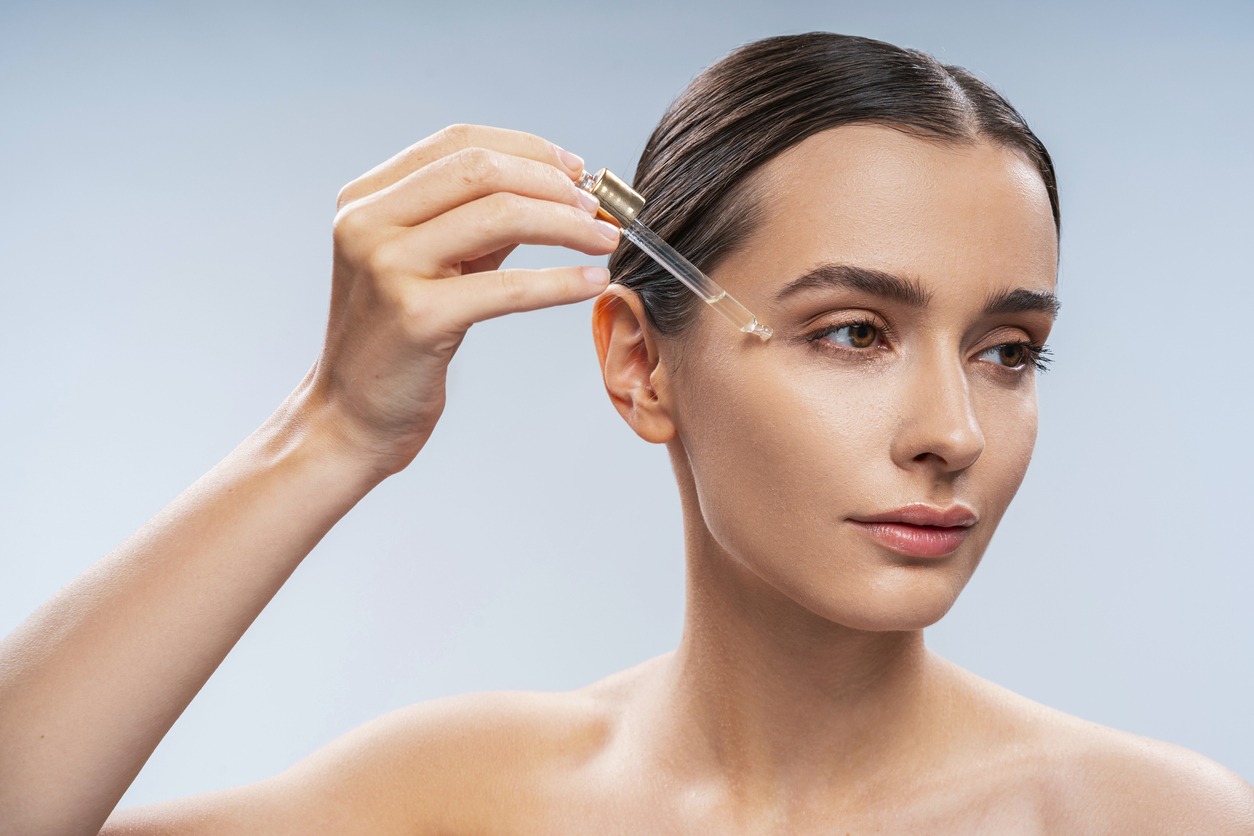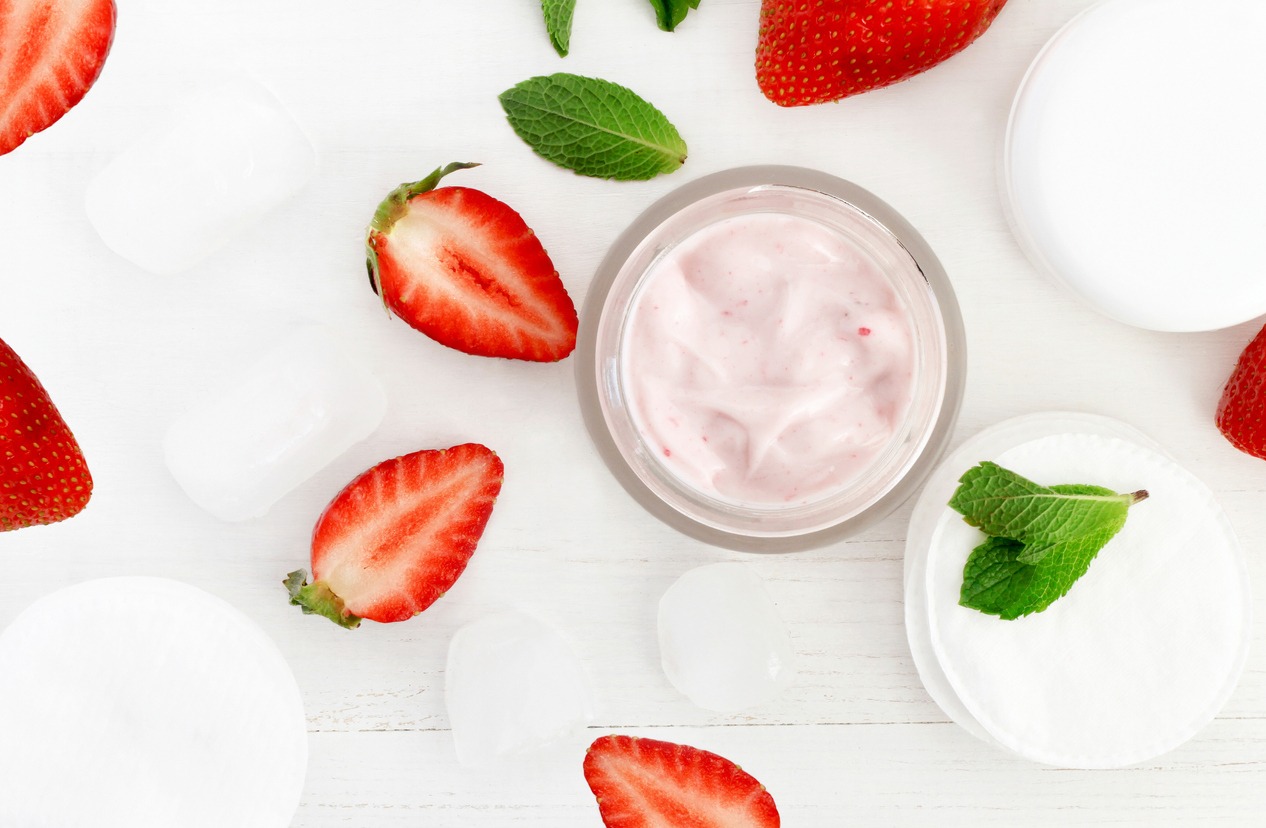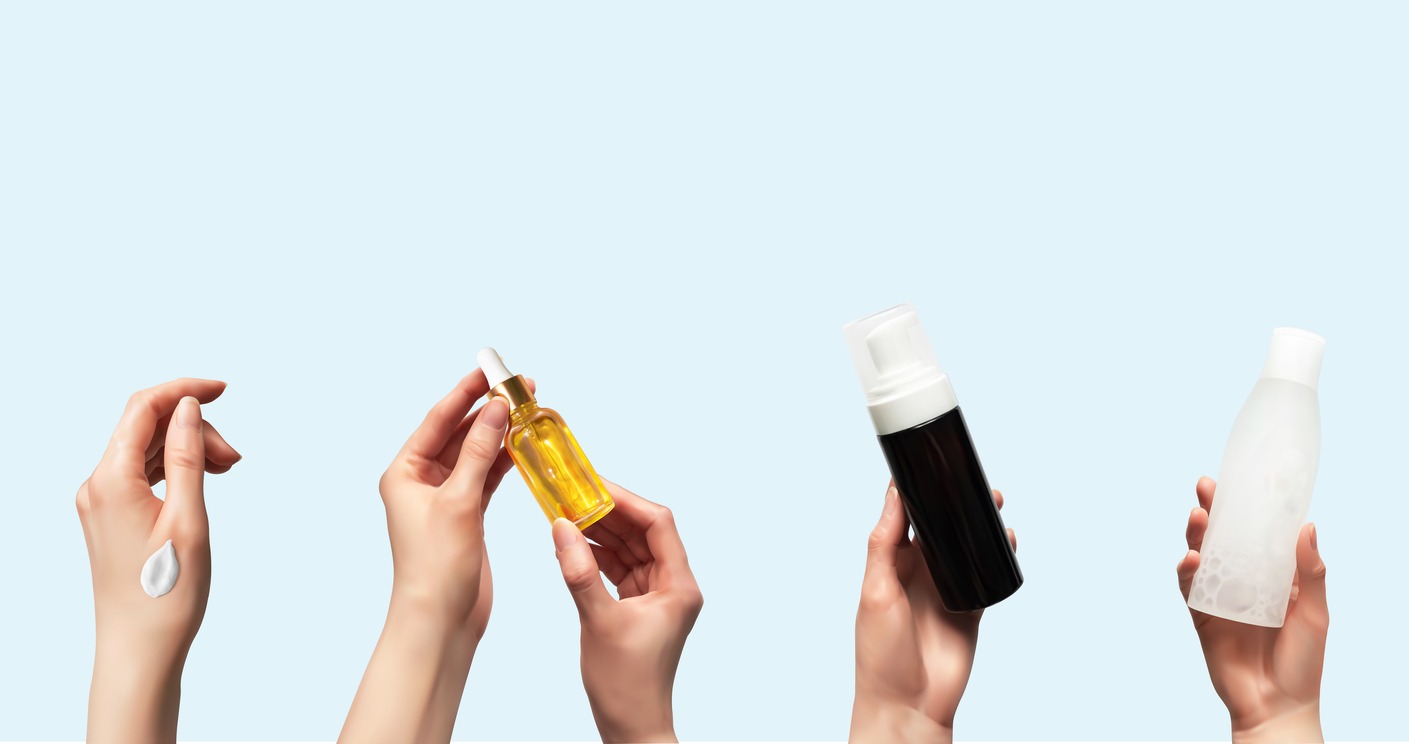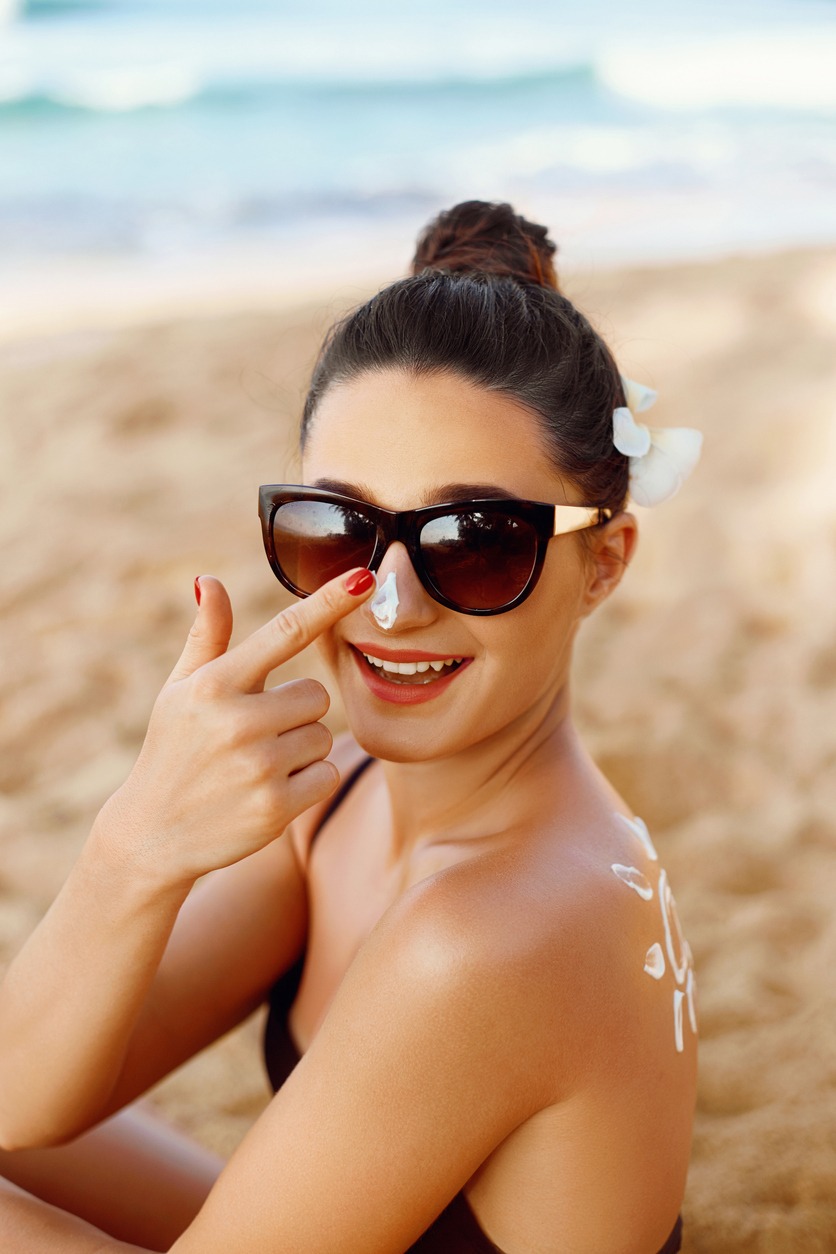Even though it is abundant, reliable information on skincare, there is also a lot of false information. The media and social media can be sources of potentially damaging and contradictory information regarding skin care. The skincare industry and the rest of the beauty industry are rife with urban legends and misinformation. And while it doesn’t mean that you disregard the sound skincare advice your mother or grandmother may have given you, the truth is that much of the conventional wisdom we’ve been taught to believe is nothing more than myths.
There are many data to sort through when deciding what is best for your skin. Especially in today’s digital age, you can find various contrasting viewpoints. Some of these skincare methods may improve your skin’s condition, while others may have the opposite effect. If you want advice to help you get healthier, younger-looking skin, you need to be sure it comes from a reliable source.
Most people want skin that is radiant and appears refreshed. As the largest and most noticeable portion of our bodies, it plays an important role in our appearance. Therefore, many people are willing to spend money on various skincare products. It may appear easy to care for, but doing so with incorrect information, beliefs, and outmoded practices can be difficult. Because of this, it’s important to clarify some common misconceptions about skin care.
Common Skincare Myths
There is a lot to learn about skincare. Many misconceptions need debunking since they do more harm than good. These deceptive methods may have no basis in science but rather in people’s gut feelings. Therefore, it is so important for consumers to be able to separate myths from realities. The greatest practices for skin care may be implemented when you have a firm grasp of the concept of a myth from factual. Some of the skincare myths debunked are as follows:
1. Keep your skin moisturized by drinking water.
There is no proof to support the claims that your skin would benefit or suffer from consuming water. While increasing your water intake can help with numerous health issues, water does not always get absorbed through your skin. As it travels through our circulatory system and is filtered by our kidneys, it hydrates our cells and, by extension, our bodies. However, extreme dehydration has evident effects on the skin and the rest of the body. Avoiding dry air or a humidifier, using a mild cleanser, and moisturizing regularly with a product containing chemicals like hyaluronic acid to help keep moisture trapped in the skin barrier are the best ways to keep your skin moisturized.
2. There is one perfect method for achieving a healthy glow
Everyone should practice certain basic skincare practices, such as cleansing their face, using sunscreen, and applying moisturizer. But your genes still significantly impact your skin’s appearance, from acne to wrinkles, regardless of how well you take care of your skin. People have varying skin types for the same reason that people have varying body types. This means that not everyone can benefit from the same skincare routine. Learning what works best for your skin may require some experiment part or the advice of a dermatologist.
3. Acne is a result of not keeping your face clean
While this may be a widely held belief, it is, in fact, false. Acne is not caused by improper or infrequent facial cleansing. Inflammation, excess oil production, bacteria, and dead skin cells contribute to clogged pores, which are necessary for acne to form. So, while it’s true that neglecting to wash your face might exacerbate the condition, it’s not the only reason people get acne.
4. Allowing Your Skin to Breathe Is Important
The idea that your skin needs to be able to “breathe” to function properly is one of many skincare myths that people believe to be true. To begin with, the integumentary system is not responsible for breathing. The top layer of skin is likewise made up of dead skin cells. Consequently, the idea that the skin needs to “breathe” is false. When some people, however, refer to the skin as “breathing,” they usually mean that the skin’s surface pores are open and unblocked.
Normal makeup, skincare products, sweat, air pollution, and other toxins can clog pores and make skin look unhealthy. Cosmetics that are “non-comedogenic” claim to be less clogging to the pores. Since they won’t cause any pore blockage, you can feel confident applying these products to your skin. Acne is avoided with non-comedogenic products because they do not promote the accumulation of sebum or the proliferation of acne-causing bacteria. Nonetheless, this has little to do with how well the skin breathes.
5. Soap is all that is required to clean your face thoroughly
Although soap removes grime, have you ever noticed how it dries out your skin after a shower? It’s a widespread skincare myth that keeping your skin “squeaky clean” can do your complexion any good, but the sensation of freshly washed skin is drying. The acid mantle is a naturally occurring barrier on your skin that prevents bacteria from penetrating your skin and causing infections. An acid mantle, composed of phospholipids found naturally in the skin, performs at its peak when its pH is slightly acidic.
Most soaps have a very strong alkaline base that might be too harsh for your skin and cause it to lose its normal acidic pH balance. Choose a mild cleanser with a pH level like your skin instead of soap. Try double cleansing with an oil-based cleanser first, then a pH-balanced foamy cleanser, especially if you use makeup or live in an area with high pollution. Due to the principle of “like dissolves like,” oil cleansers are excellent at removing excess oil from oily skin types. Using an oil cleanser first, followed by a foamy cleanser, can thoroughly clean your skin without drying it out or stripping its natural oils.
6. On a Cloudy Day, Sunscreen Is Not Necessary
Even though this myth has been disproven for quite some time, it is worth restating. It is important to remember that up to 80% of the sun’s damaging UV rays can travel through clouds, making gloomy days just as potentially harsh on your skin if you do not cover them. Sunscreen with broad-spectrum protection and an SPF of 30 or higher should be worn.
7. Maintain your skin’s youthful appearance by using retinol consistently
While retinol is without rival as an anti-aging wonder drug, it is also associated with some annoying side effects like redness, dryness, and peeling. However, if you’re already taking retinol and are experiencing this sort of discomfort, the solution is not to stop using it altogether but to adjust your routine.
It is normal for your skin to feel dry and sensitive when you first begin using retinol. Instead of eliminating retinol cold turkey, try cutting back to every other night or every third night and gradually increasing as tolerated.
8. There is no need to reapply sunscreen throughout the day
Whether you use a conventional or “once-a-day” sunscreen, reapplication throughout the day is essential because of the many things we do that cause us to sweat and rub or wash off the protection it provides, such as leaning on a table, hugging someone, or washing our hands.
9. When you have oily skin, you can skip the moisturizer
A lack of water may cause your skin’s overproduction of sebum and subsequent oiliness. It’s important to remember that oily skin may also be acne-prone. Despite popular belief, oily skin still needs moisturizing products.
Three steps make up the standard skincare routine: washing, toning, and moisturizing. Contrary to popular belief, moisturizing the skin is not optional. The trick is picking a moisturizer that won’t clog your pores anymore than necessary. A good moisturizer would maintain the skin’s moisture levels without causing an additional blockage that could stimulate sebum production.
Choose a moisturizing cream that has more water than oil. These are light and non-greasy, with a high concentration of moisturizing chemicals. When it comes down to it, you can’t escape skin hydration. However, make sure you’re using a suitable moisturizer for oily skin.
10. Chemical and toxic-free natural products are preferable for skin health
It’s a wonderful thought, but in practice, natural isn’t always best. There are numerous all-natural substances that you would never dream of applying to your skin. For instance, poison ivy is “natural” and green and organic; it’s best avoided at all costs. Not being exposed to “chemicals” is also impossible. The “chemicals” water, vitamin C, and salt are all essential to human survival. Ultimately, the chemical makeup of an ingredient, the amount taken, and the manner of administration all play a role in its hazardous potential. Unfortunately, many words used in the beauty industry are not standardized or controlled. This means they can be utilized in deceptive ways in advertising.
Conclusion
When it comes to skincare, everyone wants the best. We should do our utmost to separate scientifically based truths from myths and hearsay, even though doing so may be challenging. Before committing to a skincare product or routine, it’s important to research to be sure it’s safe. If you are unsure about anything related to your skin, it is recommended to seek the advice of a specialist. Now that you know the truth about skincare and the common fallacies, you can begin taking better care of your skin correctly.






